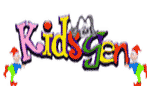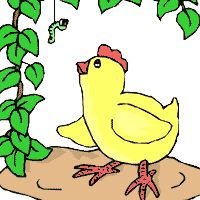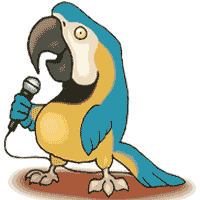
Home
 Home |
| Pets
Main | Birds | Cats
| Fish | Dogs
| Pet Rock | Pet
Wallpapers |Tortoise|
Refer this
page | Feedback | Holidays
|
Birds Make Good Pets!Birds make great pets! Most of them enjoy close contact which makes them social and sometimes cuddly friends. Some birds just love to talk or sing to you. Many parrots love sharing meals with you, napping with you and even showering with you! They love interacting with their human companions. Birds are easy to take care of .they are hardy and make great companions! Choosing and Caring for a Pet BirdThe negative aspects of bird ownership, if any, is far outweighed by the strong bond of affection that develops between a bird and its owner. Owning a pet bird can be a wonderful experience but birds are not the best pet for everyone. The life span of a bird can range from 8-80 years, depending on the species, making ownership a lifetime commitment. Birds have pleasant voices when singing or talking, but quickly become loud and obnoxious when angry or jealous. Once you are ready for the commitment of owning a bird, the next step is choosing the species that has the characteristics you desire and that fit within your lifestyle. Nutrition In Pet BirdsIt is critical to the health and longevity of our pet birds to provide a nutritionally complete diet. Birds can eat any wholesome food that humans eat including meats, pasta, rice, eggs, bread, cereals, fruits and vegetables. If seeds are fed, they should compose no more than 20% of the total diet with the remaining 80% being foods selected from all 4 food groups (meat, dairy, fruits, vegetables). It is important that all foods be washed to remove dirt and toxic substances. Allowing fresh foods to spoil in the cage can expose your bird to dangerous molds and bacteria. Moldy peanuts are a source of potent mycotoxins. These are toxic substances produced by certain molds that grow on peanuts stored in moist environments. If feeding peanuts, purchase only peanuts packaged for human consumption and store them in an air tight container. Although feeding a wide range of foods sounds good, it is hard to ensure that the bird will eat everything that is offered and in the appropriate amounts. Commercially pelleted diets contain all the essential vitamins, amino acids and minerals in the proper amount and balance. Since every bite is the same, you are assured that your bird is getting the best nutrition available. The initial cost of pelleted diets may be more than seed diets, but when waste from seed hulls, picky eating habits and spillage are considered, pelleted diets are the better deal. In addition, with pellets, no other supplements are necessary. The real economy and benefit to the pelleted diet is in the resulting health of You should preferably consult your avian veterinarian before instituting any dietary change. Its recommended that your bird undergoes a comprehensive physical examination so that it's overall condition and a baseline body weight can be obtained. Weekly rechecks are recommended to monitor body weight until your bird is completely converted to pellets and is maintaining a steady body weight. If you plan to convert your bird to a new diet, then you have to bear in mind that it might require close monitoring, patience and persistence. Foods and Feeding
Foods available for birds include: Grooming Your Pet Bird
Bathing - Frequent bathing, daily to weekly, stimulates normal preening behavior and helps to remove oil build up from handling and petting the bird. Misting is also an acceptable way of providing a bath. Take care to use only plain water while bathing your bird. Soiled feathers may be gently cleaned with a mild detergent solution (e.g., baby shampoo) followed by thorough warm water rinsing and drying. Cage Characteristics
The largest cage that can be accommodated in the home is recommended for birds that are expected to be confined most of the time. The cage must be strong enough to resist bending or dismantling by the bird, made of non-toxic material, and designed for safety and ease of cleaning. In most cases, the cage would need to be wider than it is tall to accommodate stretched wings; however, ample height should be provided for long-tailed birds Recognizing Signs of Illness
As a responsible pet owner, one should constantly monitor your bird for signs of
illness. Birds are very efficient at covering signs of illness therefore any of the above signs may indicate a very serious
problem. Familiarity with the your bird's healthy behavior, feeding habits and droppings may be the key to early detection and treatment of illness. A comprehensive pre/post purchase examination by an avian veterinarian is very important. The minimum "new bird" veterinary evaluation should include a complete visual and physical examination, complete red and white blood cell count, serum chemistry profile and gram stains of cloaca (vent area) and choana (sinus cavity). Depending on the examination findings and the species, further evaluation may be recommended such as tests for chlamydia and Psittacine Beak and Feather Disease (PBFD).
Avoid : 

|
|
| Pets Main | Birds | Cats | Fish | Dogs | Pet Rock | Pet Wallpapers |Tortoise| Refer this page | Feedback |
| Try out the other sections | |
| Home | Knowledge Quest | Birthday | Comics | Recipes | Crafts | Pets | Fun | New Year Greeting Cards | Party
Ideas | Rhymes and Poems | School Projects | Fables and Fairytales | Games | Stories | Events and Holidays | Facts | Magic | Hobbies | Tell Me Why? | A-Z of Animals | Continents | Moral Stories | Video Stories | Indian Mythological Stories | Back to School | Link to us |